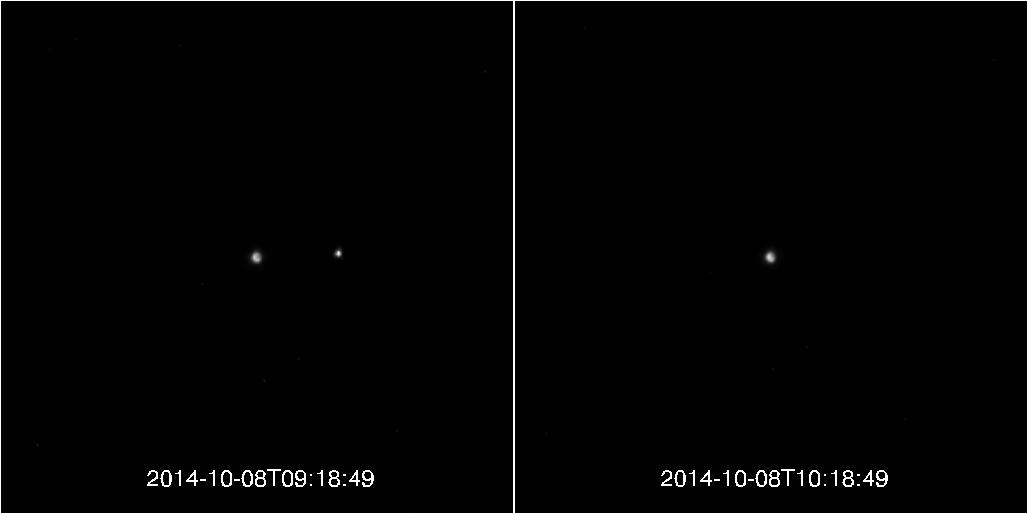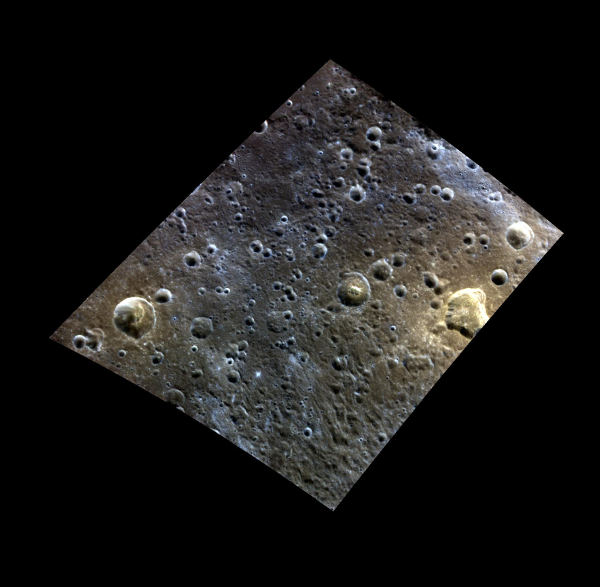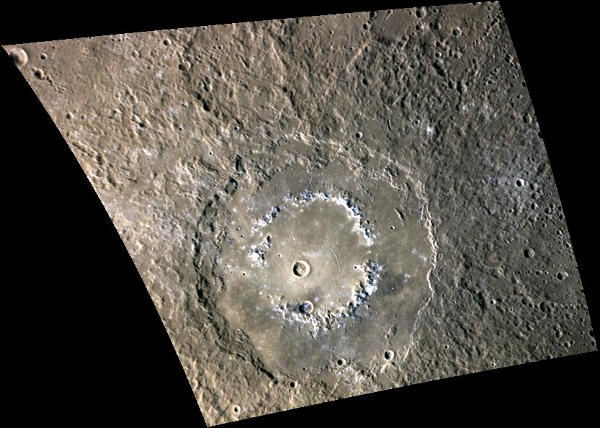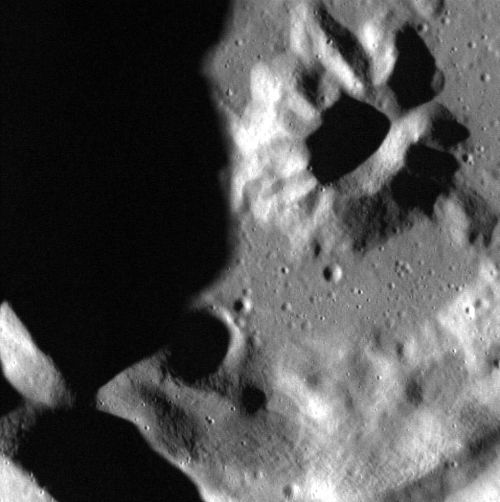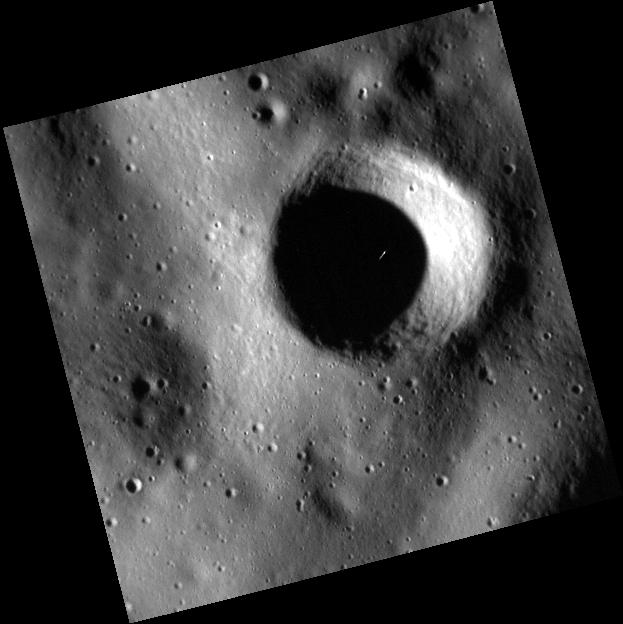
NASA’s MESSENGER mission to Mercury continues its exploration of the planet by photographing its surface, including this picture taken close to the Rustaveli crater area. The largest crater here is about 1.5 miles across while the smaller ones range down to 20 or 30 meters. The white streak in the largest crater, visible against the darkenss of the crater’s abyss, is a cosmic ray hitting the Narrow Angle Camera’s CCD sensor.
